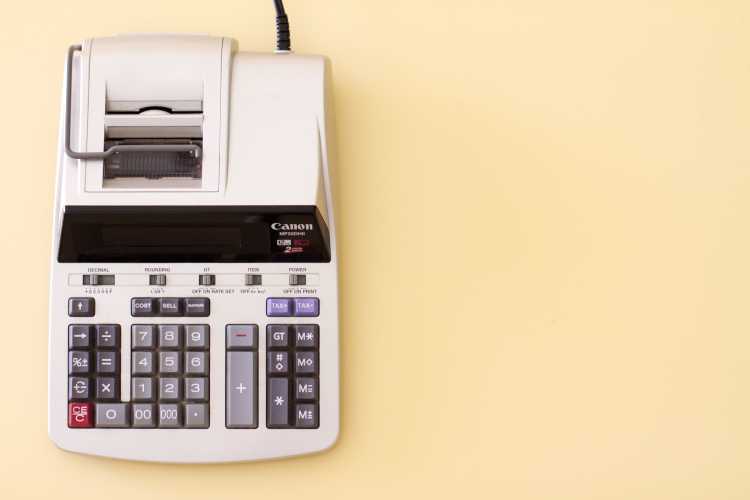There comes a point when you need to bring your accounting responsibilities in-house. But how do you identify the right moment to hire a corporate controller, and what are the important questions to keep in mind throughout the process?
To answer these questions and more, we tapped two of our favorite financial experts and friends: founder of airCFO, Justin McLoughlin, and founder and CEO of Pilot, Waseem Daher. If anyone knows the ins and outs of a successful accounting department setup, it’s these guys.
What does a controller do that my outsourced bookkeeper won’t?
Most controllers started in bookkeeping (either as a bookkeeper or accountant) and built on those skills over the course of their careers. I expect a controller can perform (and more importantly, oversee) the bookkeeper function, but not vice-versa.
A controller is generally the organization’s expert in GAAP (generally accepted accounting principles). They implement new financial systems, develop accounting processes and policies, perform in-depth financial analysis and reviews, and can set up and monitor internal controls across a growing organization. In addition, many experienced controllers will have experience in hiring, training, and developing employees in an accounting department.
If there is no CFO, then the controller (and not a bookkeeper) should be responsible for the regular, timely delivery of reviewed, GAAP-compliant financial statements for the organization.
What’s the difference between a bookkeeper and a controller?
Like much of the above, a bookkeeper could have skills in one or more of these areas, but I expect a controller to have experience in most – if not all – of them. A bookkeeper is usually an operator within an existing accounting department, whereas a controller is responsible for building and managing the department.
The most obvious differences are going to be the depth of accounting experience and cost. With the higher cost of a controller, you should expect that person to be largely self-directed with the ability to take ownership on building your accounting department and teaching you what you don’t know.
In most cases, my advice is to start with hiring a controller first and then allow that person to build his or her team, including how to deal with bookkeeping.
Why bring a controller in-house?
The biggest reason to hire a controller and bring the function in-house is that you want very tight, highly-custom control over the exact timeline on which your books are prepared every month. In general, this process is way more expensive than you think, because to really get this right, you’ll want to hire two or three people: a CFO, a controller, and a staff accountant.
What are the signs I should look for that indicate we should start interviewing for a controller position?
I like the 2/3rds rule: a controller is going to cost about $120k (about $10k/mo). If you are spending about two-thirds of that ($6.7k/mo) either for a part-time contractor or a service like airCFO, and the work (and bill) is steadily increasing, then you should start thinking about interviewing for an employee to join your team full time.
Consider cost and compliance. If you’re spending hundreds of thousands of dollars with your external provider, you may be able to realize some savings by bringing the function in-house. When it comes to compliance: if you’re in a heavily-regulated industry, you may need to make this hire sooner than later.
How do I source good candidates?
We always start with our own employees, extended network and advisors, then work outward from there. LinkedIn is an obvious, affordable option as well as industry websites that allow you to post your jobs.
For example, we’re interested in hiring finance and accounting people at the meeting points of startups and finance, and people that want to work remotely, so we look specifically to post roles in those ecosystems (e.g. Angel List).
We’ve actually helped our clients with this in the past and connected them with potential candidates directly. While asking your current external provider for candidate references is a bit bold, it’s not the worst idea.
How much should I be paying a controller?
While a full-time bookkeeper will probably run $25–40k a year, and staff accountants (someone with one to two years of experience and a degree in accounting, or a CPA) will run about $40–60k, the range for assistant controller or controller is pretty wide.
A relatively new assistant controller could make $70k in the midwest, whereas an experienced controller (five to fifteen years) on the coasts will likely start around $100k and go up from there.
It really depends on experience, location, and industry.
Est. Salary for Controllers, by State
New York: Glassdoor says $93.1k–177k, Salary.com says $156k–330k, Built In NYC says $100k–210k.
California: Salary.com says $144k–304k, Glassdoor says $90.5k–172k, PayScale says $64.4k–147k.
Texas: Salary.com says $127k–270k, Glassdoor says $82.1k–158k, PayScale says $55.2k–129k.
Michigan: Salary.com says $129k–273k, PayScale says $58.7k–123k, Glassdoor says $71.2k–139k.
What prior requirements should be considered when interviewing?
You want someone who is familiar with your business and your industry. You don’t want them to just do the month-end close, you want them to provide advice and expertise about best practices.
What about job descriptions for hiring?
You don’t need to reinvent the wheel. Simply start with a few internet searches on existing job boards and piece together the job description and requirements from there.
Do they need a team? What does that look like?
Yes. I’m a big fan of building a team. My advice is to start from the top and fill in from there. At first, you can hire a full-time controller while still outsourcing bookkeeping until the controller convinces you to bring it all in-house by adding another member to the accounting team.
I’ve seen issues in the past (e.g., controller gets burnt out) if you hire a controller and expect them to do everything from bookkeeping to financial strategy on their own.
Yes. The top-tier controller that you’d like to hire is rarely that excited about doing the bookkeeping work. So much so, that their first move is usually to hire a staff accountant.
What are the signs a controller is doing a good job?
A sign of a good controller is that the processes are becoming more streamlined and efficient. If that isn’t happening then they probably aren’t building scalable systems.
Separately, one basic thing to do (at least quarterly) is to have someone not on the accounting team review the financial statements and perform some sanity checks on cash balances, revenue, etc. Alternatively, if you have a good tax accountant, you can ask them (and probably pay a little extra) to perform a high-level review (not during their busy tax season!).
If you have the budget and/or want the extra peace of mind, another option would be to hire an independent CPA firm to do a CPA review (similar to an audit, but much less expensive and time consuming), but these can cost $10–20k.
So, when do you hire a corporate controller?
You can use McLoughlin’s two-thirds rule and start looking for a corporate controller when you realize you’re spending about 2/3rds of their potential salary on a contractor or a service like airCFO.
Perhaps then Daher would remind you: consider compliance in addition to cost, especially if you’re in a heavily-regulated industry because you may need to make the hire sooner than later.
Clearly, there are a lot of factors to consider – but we hope you found this article helpful! And, when you do decide to hire a corporate controller, we can help set you up for success with tools like automation to optimize their processes. That way, your newly-hired corporate controller can focus on helping your growing business… keep right on growing!


